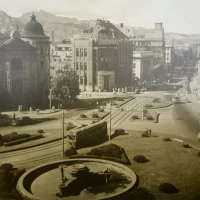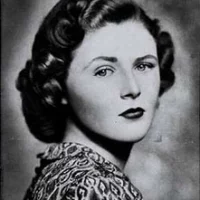Throughout the Cold War, democratic and communist nations waged a “war of ideas.” The United States, seeking to expose the disadvantages of communism and to encourage democracy, engaged in numerous media campaigns targeted at influencing peoples in zones of Cold War conflict. The U.S. State Department, along with branches of the American military and other… Read More "Picturing the “War of Ideas”: Wartime Film-Making in Korea"
Soft Power in a Cold War: Challenges of Reaching out to the Soviets
The “Iron Curtain” was a term used to denote the efforts of the Union of Soviet Socialist Republics to block its citizens from contact with the West. It persisted from the end of World War II until the end of the Cold War. Throughout those decades, the U.S. endeavored to breach the Curtain and reach… Read More "Soft Power in a Cold War: Challenges of Reaching out to the Soviets"
Basketball: the Fifth Basket of the Helsinki Final Act
The Helsinki Final Act, an agreement signed by 35 nations at the Conference on Security and Cooperation in Europe (CSCE) on August 1, 1975, addressed a spectrum of global problems and had a lasting impact on U.S.-Soviet relations. The Helsinki Final Act dealt with a variety of issues divided into four “baskets.” The first basket… Read More "Basketball: the Fifth Basket of the Helsinki Final Act"
The ACDA-USIA Merger into State — The End of of an Era
As the Cold War began to go into full swing, the United States soon realized the need for distinct agencies that would operate outside of the existing federal executive departments. Accordingly, independent agencies such as the U.S. Arms Control and Disarmament Agency (ACDA) and the United States Information Agency (USIA) were created in 1961 and… Read More "The ACDA-USIA Merger into State — The End of of an Era"
An Embassy in Flames: Islamabad, 1979
The November 21, 1979 attack on the American Embassy in Islamabad started as a small group demonstration in front of the embassy, where protesters shouted anti-American slogans and demanded entry into the campus. Police officers were able to stop the protesters and have them leave the area. However, about fifteen minutes later, some six busloads of Pakistani… Read More "An Embassy in Flames: Islamabad, 1979"
Anatomy of an Overthrow: How an African Leader was Toppled
A council of combined security forces known as the Derg staged a coup d’état on September 12, 1974 against Ethiopian Emperor Haile Selassie I, arresting and imprisoning the monarch who had ruled for decades. The committee renamed itself the Provisional Military Administrative Council, took control of the government, soon abolished the monarchy and established Marxism-Leninism… Read More "Anatomy of an Overthrow: How an African Leader was Toppled"
An effective diplomat, dazzling socialite, and the mother of Winston Churchill’s grandson, Pamela Digby Churchill Hayward Harriman won the respect of fellow diplomats and adroitly handled complex problems related to the war in the Balkans, export subsidies, and intellectual property rights during her tenure as U.S. Ambassador to France from 1993-1997. Richard Holbrooke said of…
Observing the Fiftieth Anniversary of VJ-Day in Japan
How to commemorate an important anniversary of the country in which you’re posted when it marks a low point in the bilateral relationship? World War II came to an end when Imperial Japan announced its surrender on August 15, 1945; officials from its government signed the Japanese Instrument of Surrender on September 2 aboard the… Read More "Observing the Fiftieth Anniversary of VJ-Day in Japan"
Jesse Helms: The Senator Who Just Said No
Jesse Alexander Helms, a five-term Republican Senator (1973- 2003) from North Carolina, was known not only for his conservative beliefs but for the lengths he would go in support of them. A proponent of the conservative resurgence movement in the 1970s, Helms cherished his nickname: “Senator No,” granted for his obstructionist tendencies. As a member… Read More "Jesse Helms: The Senator Who Just Said No"
The Neutron Bomb — A Negotiating Dud
The neutron bomb, a low-yield thermonuclear weapon which would be especially lethal to enemy ground troops but would not seriously damage buildings, became the focus of international controversy when the U.S. and a few others had proposed deploying the weapon in Western Europe to counter the Soviet threat. Many NATO countries were unwilling to accept… Read More "The Neutron Bomb — A Negotiating Dud"


